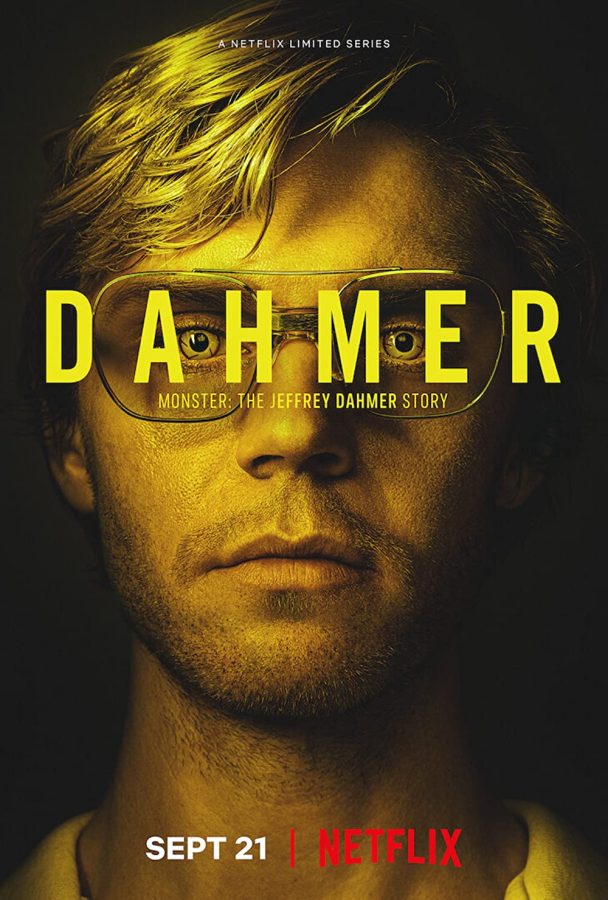The Jeffrey Dahmer Story: Creating an Immature Social Media Storm
November 16, 2022
Bold, reminiscent, and unsettling are just three adjectives that describe Ryan Murphy’s horrific retelling of the infamous serial killer Jeffrey Dahmer. This past September, Monster: The Jeffrey Dahmer Story reached #1 on Netflix’s Top 10 list and streamed for 300 million hours within its second week on the platform, breaking Netflix history.
The series depicts graphic, dramatic, and often inaccurate retellings of Dahmer’s encounters with his victims. Through his series, Murphy illustrates the racist and frustrating police system of 1990’s America, the same system that failed to save many of Dahmer’s victims.
Like many Americans, I recently completed the series, and I gradually felt sadness, fear, and a strange fascination overtake me. It’s no secret that America, specifically Hollywood, has an unhealthy obsession with true crime. But the extreme levels of curiosity ignited by Monster is—to put it plainly—scary.
After the show’s release in early September, people on social media, specifically adolescents, began obsessing over Evan Peter’s portrayal of Dahmer. After watching the series, my social media algorithms led me to an endless stream of Dahmer-related TikToks, Instagram posts, Twitter threads, and memes. My fascination with the series led to unintended consequences, for when I got lost in the black hole of social media, I was angered by what I saw.
A particular scene from the series depicts Dahmer performing acts of cannibalism. I found this scene extremely difficult to watch; however, social media users seemed to have interpreted this scene differently. I never intended to watch this scene again: the sickening details were enough to scare away viewers. When I watched the scene for the second time, it was a complete accident. Appearing on my TikTok feed, edited in slow motion, and paired to an upbeat Katy Perry song with the lyrics “did somebody say just eat” was this exact scene. I was beyond disturbed—I was horrified. Yet my fascination eventually led me to the comment section of the video, where I found people liking, enjoying, and laughing at the video. This left me confused-–how could any sane person with a decent moral compass possibly make such insensitive videos glorifying a serial killer? A real serial killer. A murderer who destroyed the lives of real people. One meme in particular edited Dahmer’s face into a Five Guys restaurant captioned with an insensitive joke: “This doesn’t taste like Five Guys.” Another video sexualized Peters as Dahmer. To my surprise, the comment section was worse—thousands of users not only liked the video, but also agreed with it. Do people in our world agree that a serial killer can be…attractive?
Disgusted, confused, and speechless are only three adjectives that describe my feelings toward the overall reaction to Monster: The Jeffrey Dahmer Story.
I am searching for an answer to explain the overall response to Monster, and I have drawn two major conclusions: 1. Social media has impeded empathy among teenagers and young adults. 2. As a whole, our generation simply lacks the maturity to understand the heavy themes of this series including loss, the reality of true crime, and the heavy impact of racism on our society.
It’s no revelation that social media and empathy have a negative correlation. Previous research provided by Forbes and Georgia Southern University clearly illustrates that an increase in social media usage directly relates to a decrease in empathy and an increase in compassion fatigue—a phenomenon that explains why humans become numb to tragic incidents.
I do recommend Monster: The Jeffrey Dahmer Story. The story is impactful, cautionary, and meaningful. However, it cannot be stressed enough that those who lack maturity, understanding, and empathy should not submerge themselves into a series depicting an extremely dark American reality.







